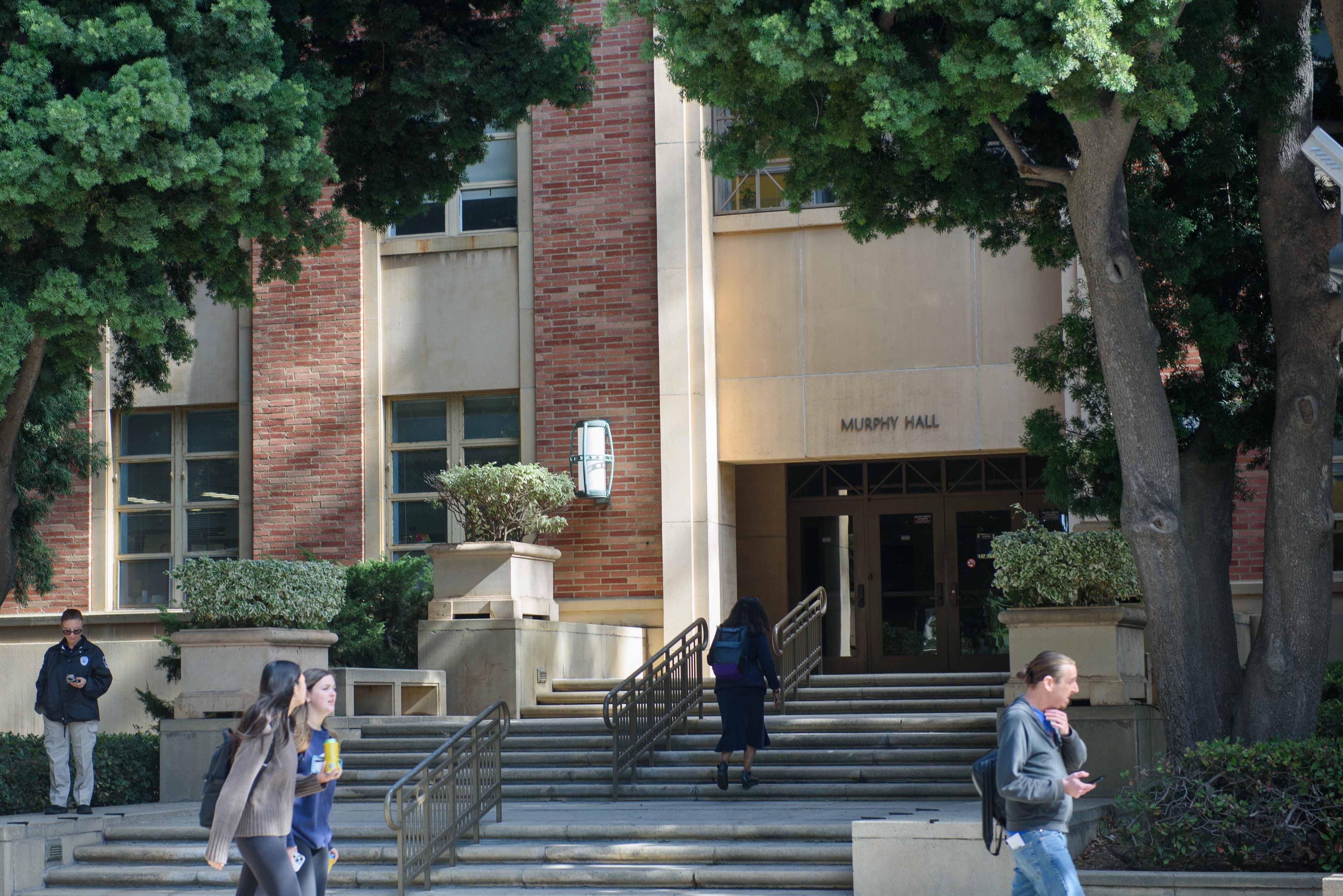UCLA, Morgan State University partner for mutual research, mentor opportunities
Murphy Hall is pictured. UCLA recently announced a partnership with Morgan State University, a historically black University, to provide mentorship and research opportunities. (Vanessa Man/Daily Bruin)
By Micah Hoffman
Dec. 1, 2024 6:47 p.m.
UCLA partnered with Morgan State University, a historically Black university, to improve research and mentorship between the two institutions.
MSU has $20 million in federal grant funds and over 10 state-supported research centers in Baltimore, Maryland, according to UCLA’s announcement of the partnership. The project is a mutual partnership between the two schools, said Roger Wakimoto, UCLA’s vice chancellor for research and creative activities.
“This is going to be a two-way partnership,” he said. “We hope some of their students and faculty will come here and spend time at UCLA.”
Wakimoto added that the program will primarily be carried out through an exchange student opportunity between the two locations – something he thinks will benefit students at both schools.
The partnership emerged after an on-campus visit from Morgan State administrators, according to the announcement.
“I’ve always been strongly supportive of UCLA working with minority institutions,” Wakimoto said. “It taps into a very diverse workforce or student population that makes us a stronger university.”
Wakimoto said the institutions will attempt to split the financial costs in a fair way.
UCLA’s historically Black colleges and universities coordinator Nasia Turner said in an emailed statement that it is crucial for all students to recognize the historical significance of HBCUs like Morgan State – institutions established for the education of African Americans.
“HBCUs already produced the largest number of Black doctors and lawyers in the nation; now they have millions of dollars in funding and resources to produce even more Black professionals,” she said in the statement.
Turner added that Black students at UCLA should take an active role in this collaboration.
“All Black UCLA students need to know that HBCUs exist, that they have the opportunity to visit and study at HBCUs, and that they can see themselves in HBCU faculty,” she said in the statement. “Research shows that Black students studying at Black colleges directly and positively impacts their sense of self and motivation.”
The UCLA-MSU collaboration is part of the UC-HBCU Initiative, a statewide program designed to address the underrepresentation of African American students in graduate studies through partnerships and research opportunities. African American students represent 4.2% of doctoral enrollment across the UC system, according to the UC Office of the President.
Courtney Thomas Tobin, the UCLA Fielding School of Public Health-Xavier University of Louisiana community health and research mentorship pathways director, said she participated in a similar program as an undergraduate.
During her studies at Xavier University, an HBCU, she spent a summer conducting research at UCLA under the mentorship of Dr. Michael Lu, a professor of community health sciences. Tobin’s eight weeks at UCLA introduced her to the subjects she researches today, including how racialized stress and coping mechanisms contribute to medical inequities for Black Americans, she added.
“It was really working with him and taking a summer class and having this deep dive exposure into public health that was really transformative,” Tobin said.
UC-HBCU programs provide students with skills to strengthen their academic and professional careers, including research techniques, writing expertise and networking opportunities, Tobin said. Students who complete summer pathway programs and enroll in UC Ph.D. programs are also eligible for graduate funding packages, she added.
“The overall goal is to help students and provide a pathway to graduate training, graduate programs and help students to learn: What is that process? What does that look like? What’s the experience of being a graduate student?” Tobin said. “It’s a great way to do that separate from your home institution.”
